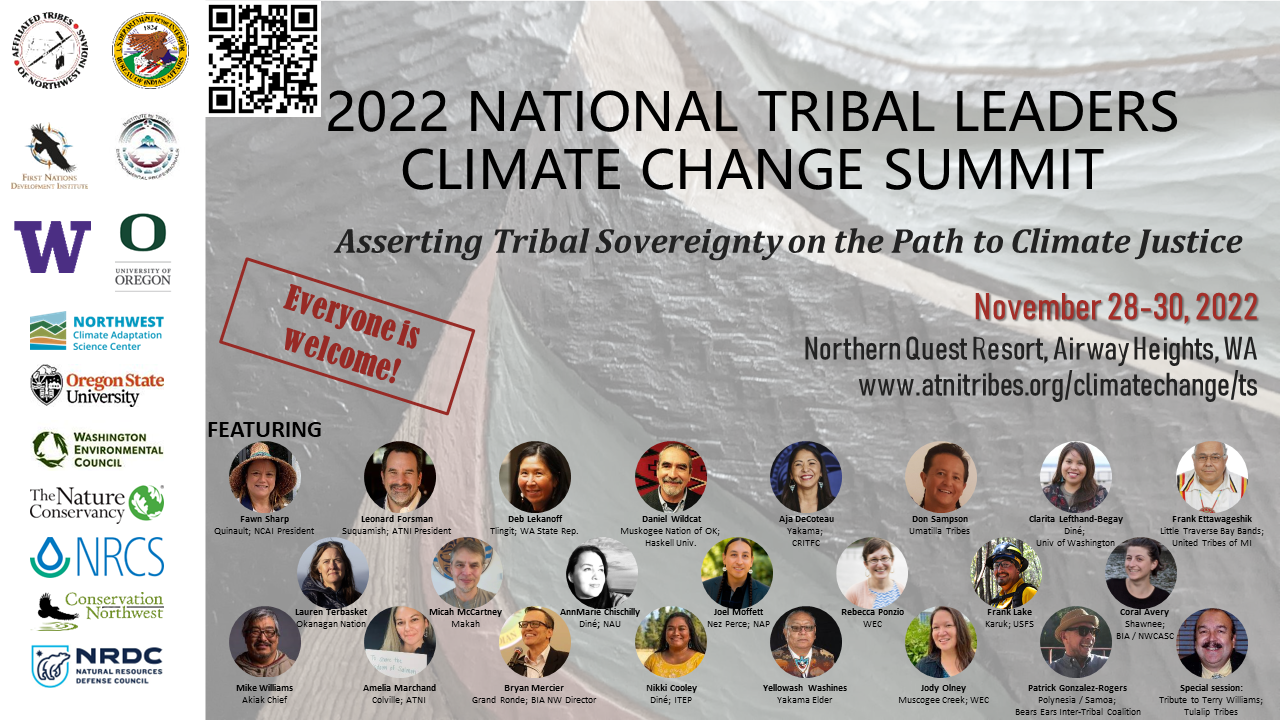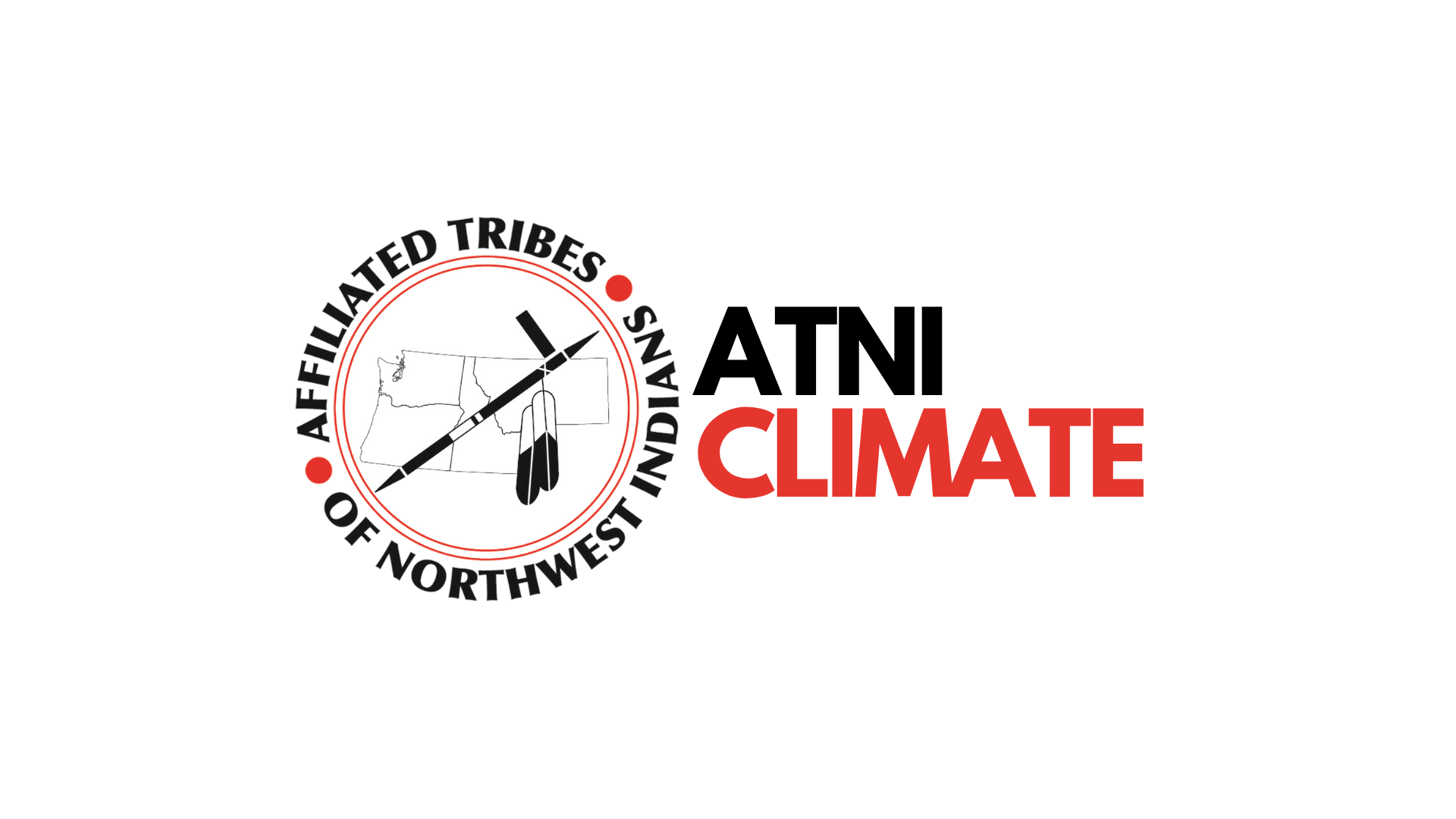
Overview
The 2022 National Tribal Leaders Climate Change Summit will convened leaders from Tribes and First Nations to advance tribal climate change policy and action.
When: November 28-30, 2022
What: The Summit engaged Tribal leaders, citizens, staff, youth and collaborators in conversation about navigating the cultural, economic, and social challenges of climate change. Our goals included:
- Hearing from Tribal communities on the frontlines of climate change;
- Exploring what a just transition looks like for diverse Tribal Nations; and
- Discussing how Tribal sovereignty and co-management can advance climate action.
Who: Audience included:
- Tribal leaders, staff, and interested citizens;
- Tribal and non-tribal organization staff; and
- Tribal collaborators (including advocacy groups, academics, or governmental staff).
Summit Partners included Affiliated Tribes of Northwest Indians, Bureau of Indian Affairs, PNW Tribal Climate Change Network, Northwest Climate Adaptation Science Center, Oregon State Univ., First Nations Development Institute, The Nature Conservancy, NRCS, OSU Forestry, Univ. of Washington, Washington Environmental Council, and Institute for Tribal Environmental Professionals, Conservation Northwest, and Natural Resource Defense Council
Planning Team:
- Chas Jones, Affiliated Tribes of Northwest Indians
- Amelia Marchand, Affiliated Tribes of NW Indians / NW Climate Adaptation Science Center
- Luhui Whitebear, Oregon State University
- Clarita Lefthand-Begay, Univ. of Washington
- Jody Olney, Washington Environmental Council
- Nikki Cooley, Institute for Tribal Environmental Professionals
- John Mankowski, Mankowski Environmental
- Kathy Lynn, Tribal Climate Change Network
- Coral Avery, Bureau of Indian Affairs
Goals and Objectives are based in understanding Native climate sensitivity
Native communities are among the most climate-sensitive groups within the Northwest, Southern and Eastern regions of the United States.
ATNI Office
P.O Box 66209
Portland, OR 97290
(503) 249 5770
climate@atnitribes.org
